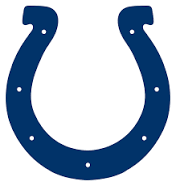LA Chargers
- Paul Grange

- Sep 23, 2025
- 2 min read

When Barron Hilton — son of hotel magnate Conrad Hilton — was awarded an AFL franchise in 1959, he wanted a name that carried speed and spectacle. A “name the team” contest gave him exactly that: the Chargers. Hilton explained he loved the way crowds would shout “Charge!” at sporting events with a bugle call, and he wanted his team forever tied to that energy.
The Hilton fortune behind the team had been built by Barron’s father, Conrad Hilton, who made his name during the Great Depression. While others folded, Hilton bought failing hotels at rock-bottom prices. Though nearly bankrupted in the early 1930s, he clawed back and turned Hilton into one of the first truly international hotel chains, anchored by properties like the Roosevelt in New York and the Palmer House in Chicago. Barron inherited that blend of risk-taking and glamour.
The Chargers began in Los Angeles in 1960, but after just one season they shifted south to San Diego, where they played for over 50 years. San Diego itself was born from Spanish colonisation — named after San Didacus of Alcalá when the first mission and presidio in Alta California were established in 1769. Its economy grew on ranching and trade, then boomed in the 20th century with naval bases, aerospace contracts, and tourism, later becoming a hub for biotech and medical research. The Chargers’ decades in San Diego reflected that blend: military grit, sunshine glamour, and innovation. They gave the city its only major professional sports championship with the 1963 AFL title.
Yet Los Angeles always beckoned. Founded in 1781 as El Pueblo de Nuestra Señora la Reina de los Ángeles de Porciúncula — “The Town of Our Lady the Queen of Angels” — LA grew from a Spanish settlement to an oil boomtown, then the global capital of Hollywood and aerospace. Today it is one of the world’s most powerful metros: ports, film, fashion, tech, and tourism.
Their new home, SoFi Stadium in Inglewood, is a $5 billion marvel: a translucent roof that spans field and plaza, natural ventilation, and the colossal “Infinity Screen,” the largest video board in sport. Built as the centrepiece of Hollywood Park, a 300-acre entertainment complex, SoFi is a stage worthy of LA. It hosted Super Bowl LVI, will host the 2026 FIFA World Cup, and will feature in the 2028 Los Angeles Olympics.
On the field, the Chargers’ story is one of stars and heartbreak. They’ve produced legends like Lance Alworth, Dan Fouts, Junior Seau, and LaDainian Tomlinson, and reached the Super Bowl once, in 1995, falling to the 49ers.
The Chargers’ identity in LA is sharpened by contrast with their housemates, the Rams. The Rams are the older franchise, long tied to Hollywood glitz and “old LA” celebrity culture, crowned by their recent Super Bowl win at SoFi. The Chargers, by contrast, are the outsiders, still fighting for attention in a crowded market. Their fanbase is younger, scrappier, carrying the memory of San Diego loyalty while carving out a new voice in Los Angeles.
The Los Angeles Chargers are Hilton glamour and Depression-era grit, San Diego’s sunshine and science, Los Angeles’ reinvention and spectacle. They are the Chargers.







Comments